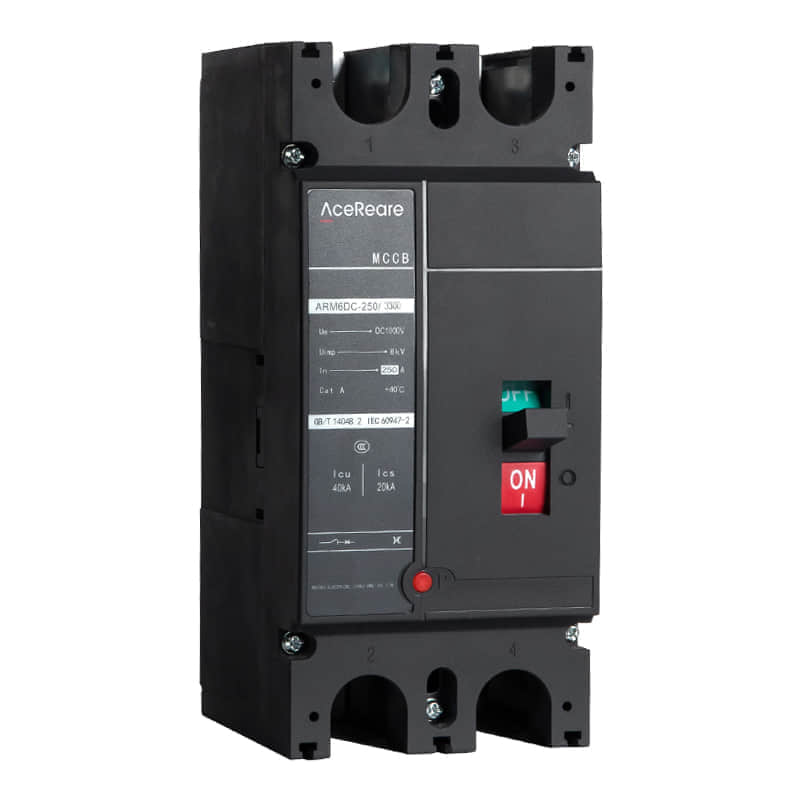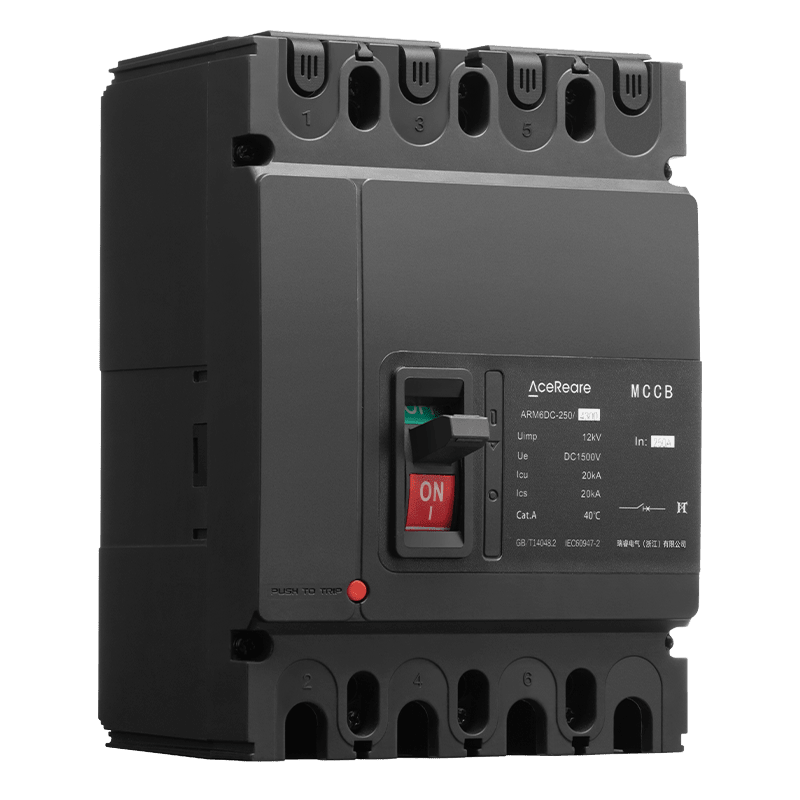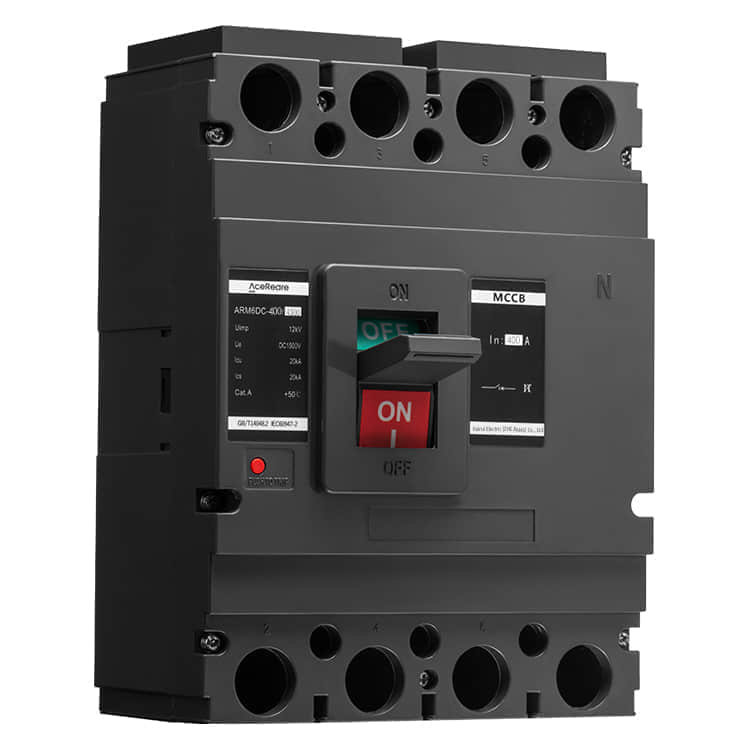A DC Molded Case Circuit Breaker (MCCB) is an essential electrical protection device used to safeguard circuits from overloads and short circuits in Direct Current (DC) systems. Unlike their AC counterparts, DC MCCBs are specifically designed to handle the unique characteristics of DC electricity, making them critical components in applications ranging from industrial machinery to renewable energy systems such as solar power installations. This article will explore the fundamental features, working principles, advantages, and common applications of DC molded case circuit breakers.

What is a DC Molded Case Circuit Breaker?

A DC MCCB is a type of circuit breaker that is molded into a solid case, offering comprehensive protection for electrical circuits in a DC system. The primary function of a circuit breaker is to automatically disconnect the circuit in the event of an electrical fault, such as an overload or short circuit, thus preventing potential damage to equipment or the system itself. The “molded case” refers to the robust plastic or composite casing that encloses the breaker components, providing insulation and durability. Unlike traditional AC circuit breakers, DC MCCBs are engineered to break the current flow in direct current systems, where the current flow remains unidirectional, unlike alternating current systems where the current periodically reverses direction. This unidirectional flow presents a challenge for circuit breakers, as DC systems do not naturally pass through zero voltage, which is a critical factor in extinguishing electrical arcs during fault conditions.
